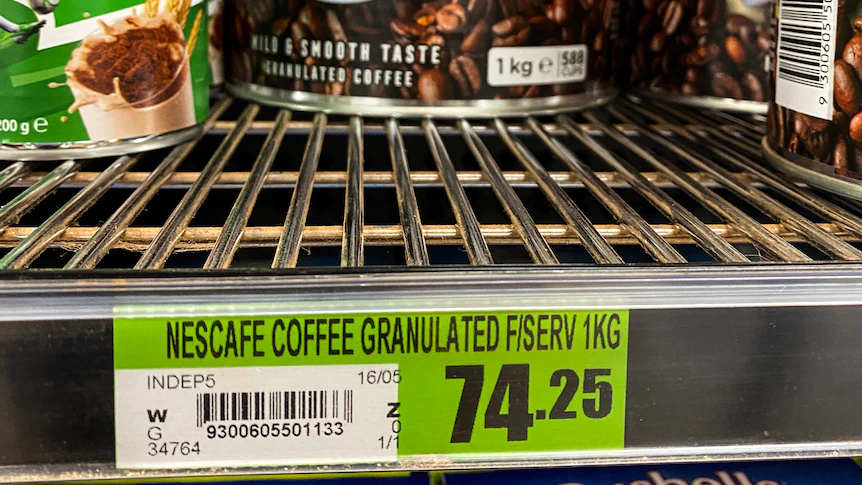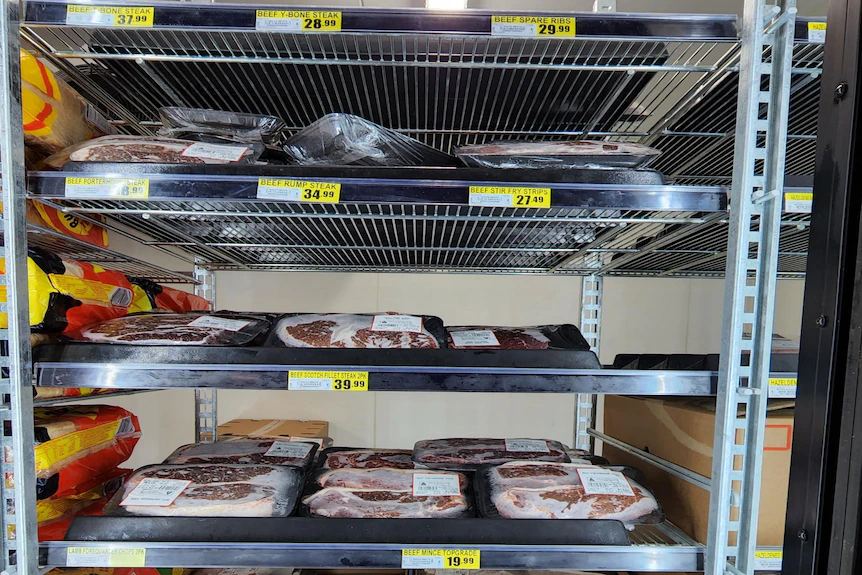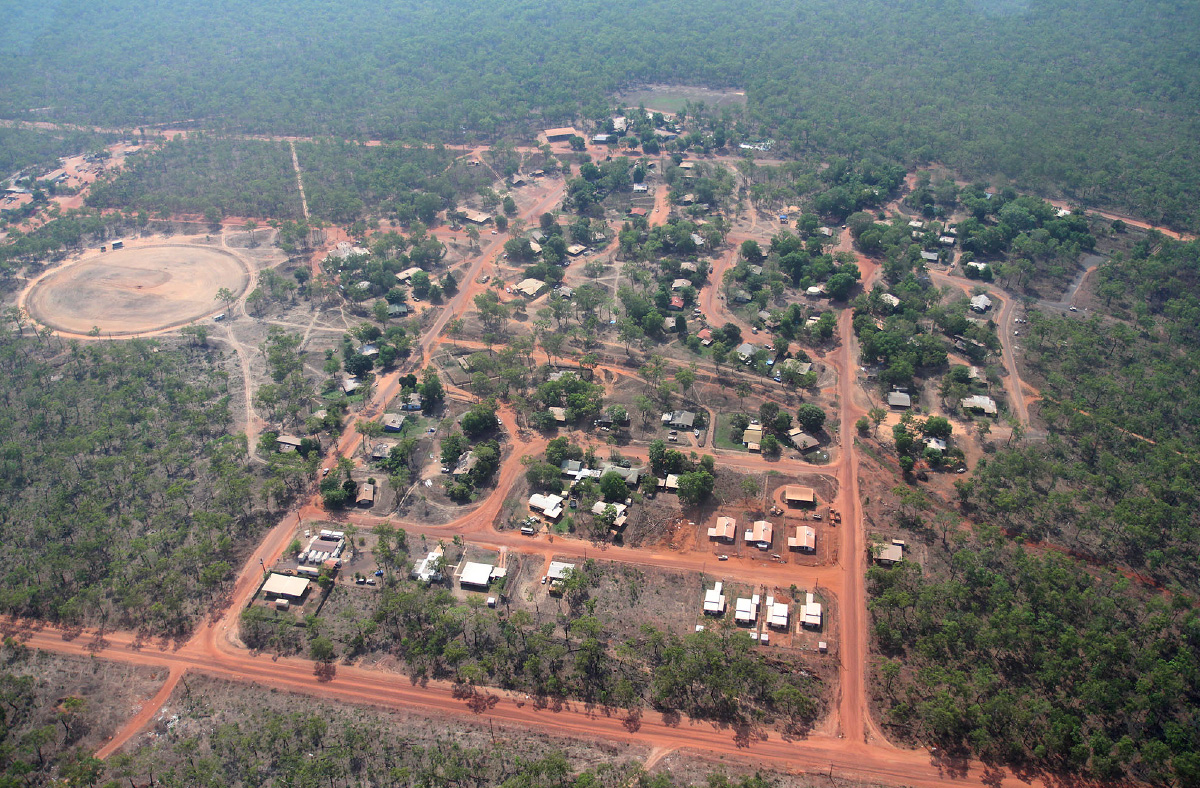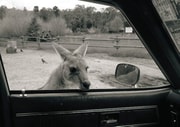In this Australian town, ONE jar of coffee costs $74 due to rising fuel and freight costs
- Replies 5
Frustrated at the recent grocery price inflation? Spare a thought for Aussies living in the deep outback. The price of fresh milk has risen to an all-time high of more than $8 for 2 litres, with residents of a remote community in the Northern Territory paying as much as $74 for a tin of coffee.
Wadeye's Murrinhpatha Nimmipa Store, the only store in a 400-kilometer radius, has almost everything on its shelves priced higher than it was a few months ago.
Manager Jake Clarke claimed that due to a strained global supply chain, unfavourable weather, and rising fuel and energy prices, he was forced to increase the margin on food items after more than a decade of not doing so.
"We are getting to the point where we are just covering our costs," he said. "It's not because I want to, it's because I have to."
Mr Clarke claimed that in order to maintain the affordability of nutritious food, corned beef was being sold for $15 and fruit and vegetables were being sold at a loss.

Residents of Ramingining pay $74 for instant coffee. Credit: ABC.
The cost of produce had also increased at Ramingining, a town on the mainland with 900 residents that is located nearly 600 kilometres east of Darwin.
A sign in the retail shop of the Arnhem Land Progress Aboriginal Corporation stated that price hikes in fuel and freight have had a significant effect on the community.
"Over the past two years, we have done our best to absorb these increases in an effort to keep prices down. However, this is no longer sustainable," it read.
"We have had to make the difficult decision to pass on some of these costs."
Nescafe instant coffee was seen to cost $74.25 per kg, while powdered milk was $10.25 and small pots of cream were close to $8.
According to an ALAC spokeswoman, the company is not only dealing with sharply rising fuel and transportation costs, but also labour costs as a result of Fairwork's most recent increase in the minimum wage.
In a statement to ABC, she said, "Fairwork Australia's decision, while reasonable and understandable, will increase our employment costs across all of our activities and businesses by over $1,000,000."
In comparison to the same quarter last year, the organisation is paying $250,000 more in freight fees.
The spokeswoman also stated that the business has noticed that some customers "have to take products out of their shopping baskets to make their dollars stretch" and they are making every effort to keep the costs passed on to customers to a minimum.

Due to the substantial price increase, few people in Urapunga purchase meat. Credit: ABC.
Greg Pattison, chief executive of Foodbank South Australia and Central Australia, claimed that residents of Alice Springs were also turning to charities as a result of the crisis of rising food prices.
"We're starting to see people come in who aren't necessarily people you would think would require welfare assistance. They are people for whom the cost of living has meant they can't feed their families," he said, adding that the charity's operating expenses have gone up by about $50,000 every month.
A live price monitoring tool, as well as a focus on local distribution and food production, were among the recommendations from a 2020 enquiry into food prices and food security in remote Indigenous communities.
Despite more than two years having passed, Northern Territory Senator Malarndirri McCarthy said the government was still committed to implementing 10 of the 16 recommendations, which the federal government had backed.
She claimed that the government was committed to replacing the Community Development Program and was concentrating on raising wages and addressing the rising cost of living.
Senator McCarthy also said that the new plan would be a "real jobs program that pays decent wages" and could help with the high cost of living in the outback.
What are your thoughts, folks?

Ramingining township is in Central Arnhem Land between the Glyde and Blyth rivers. Darwin is 580km east. Credit: IGLD.
Wadeye's Murrinhpatha Nimmipa Store, the only store in a 400-kilometer radius, has almost everything on its shelves priced higher than it was a few months ago.
Manager Jake Clarke claimed that due to a strained global supply chain, unfavourable weather, and rising fuel and energy prices, he was forced to increase the margin on food items after more than a decade of not doing so.
"We are getting to the point where we are just covering our costs," he said. "It's not because I want to, it's because I have to."
Mr Clarke claimed that in order to maintain the affordability of nutritious food, corned beef was being sold for $15 and fruit and vegetables were being sold at a loss.
Residents of Ramingining pay $74 for instant coffee. Credit: ABC.
The cost of produce had also increased at Ramingining, a town on the mainland with 900 residents that is located nearly 600 kilometres east of Darwin.
A sign in the retail shop of the Arnhem Land Progress Aboriginal Corporation stated that price hikes in fuel and freight have had a significant effect on the community.
"Over the past two years, we have done our best to absorb these increases in an effort to keep prices down. However, this is no longer sustainable," it read.
"We have had to make the difficult decision to pass on some of these costs."
Nescafe instant coffee was seen to cost $74.25 per kg, while powdered milk was $10.25 and small pots of cream were close to $8.
According to an ALAC spokeswoman, the company is not only dealing with sharply rising fuel and transportation costs, but also labour costs as a result of Fairwork's most recent increase in the minimum wage.
In a statement to ABC, she said, "Fairwork Australia's decision, while reasonable and understandable, will increase our employment costs across all of our activities and businesses by over $1,000,000."
In comparison to the same quarter last year, the organisation is paying $250,000 more in freight fees.
The spokeswoman also stated that the business has noticed that some customers "have to take products out of their shopping baskets to make their dollars stretch" and they are making every effort to keep the costs passed on to customers to a minimum.
Due to the substantial price increase, few people in Urapunga purchase meat. Credit: ABC.
Greg Pattison, chief executive of Foodbank South Australia and Central Australia, claimed that residents of Alice Springs were also turning to charities as a result of the crisis of rising food prices.
"We're starting to see people come in who aren't necessarily people you would think would require welfare assistance. They are people for whom the cost of living has meant they can't feed their families," he said, adding that the charity's operating expenses have gone up by about $50,000 every month.
A live price monitoring tool, as well as a focus on local distribution and food production, were among the recommendations from a 2020 enquiry into food prices and food security in remote Indigenous communities.
Despite more than two years having passed, Northern Territory Senator Malarndirri McCarthy said the government was still committed to implementing 10 of the 16 recommendations, which the federal government had backed.
She claimed that the government was committed to replacing the Community Development Program and was concentrating on raising wages and addressing the rising cost of living.
Senator McCarthy also said that the new plan would be a "real jobs program that pays decent wages" and could help with the high cost of living in the outback.
What are your thoughts, folks?
Ramingining township is in Central Arnhem Land between the Glyde and Blyth rivers. Darwin is 580km east. Credit: IGLD.







